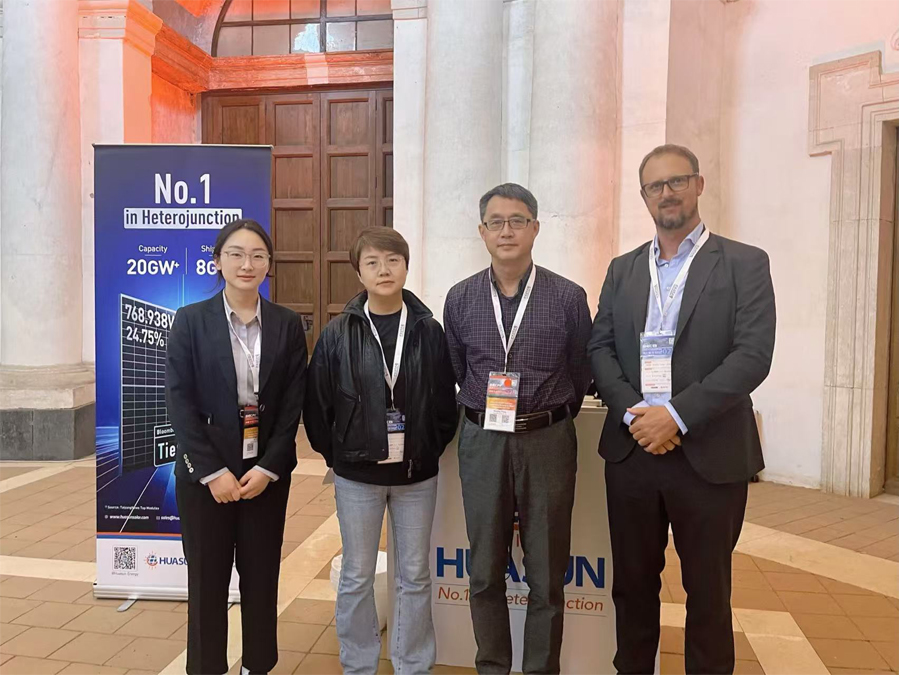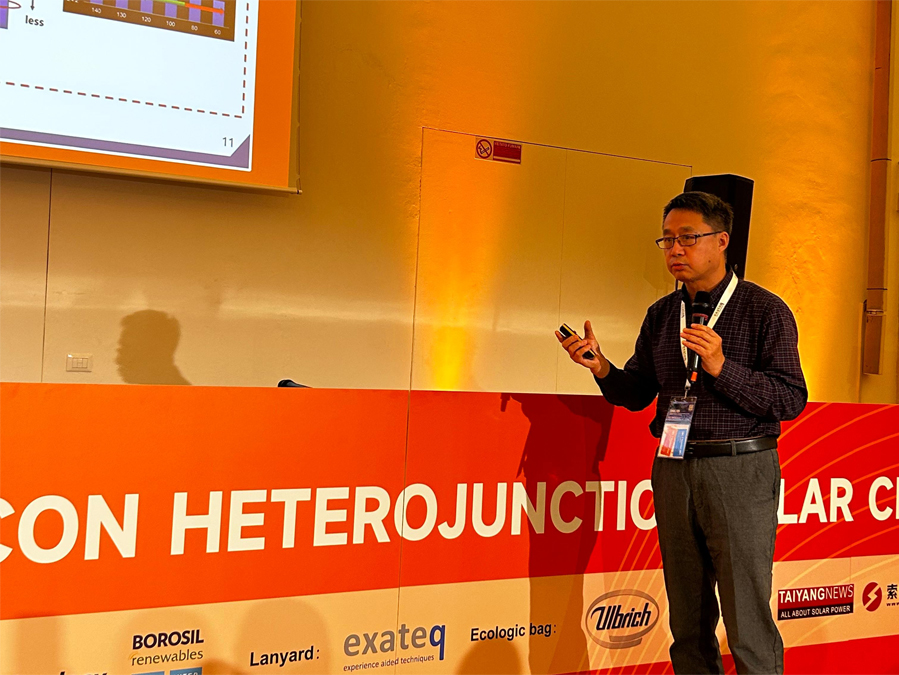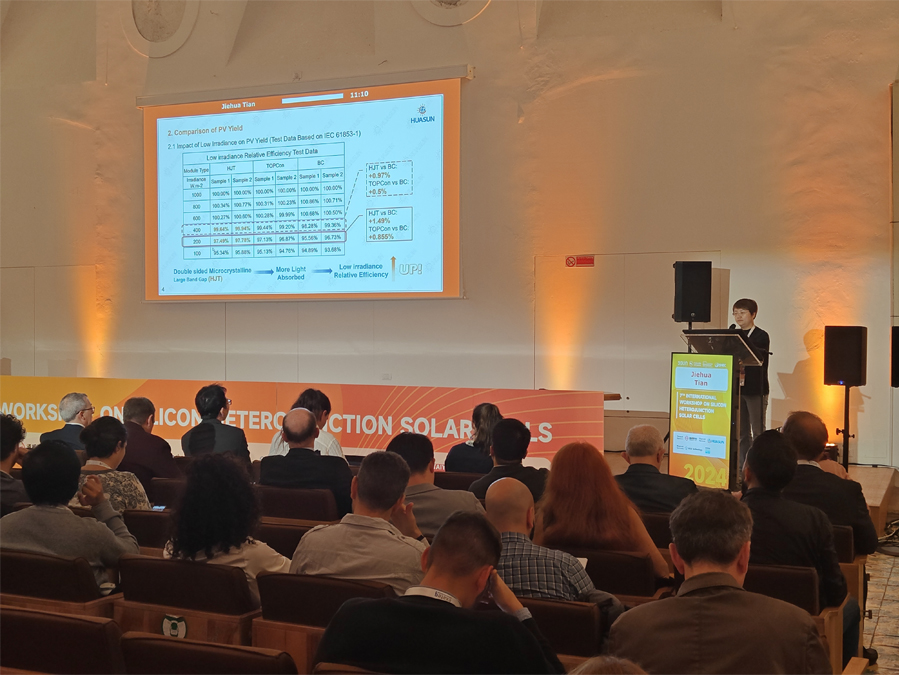en
On November 7-8, the 7th International Workshop on Silicon Heterojunction Solar Cell was held at the University of Catania in Italy, drawing experts worldwide to discuss the high-potential heterojunction (HJT) photovoltaic technology. Dr. Wenjing Wang, Chief Scientist of Huasun Energy, and Jiehua Tian, Head of Product Development & Management Center, attended as guest speakers, sharing Huasun’s achievements in HJT R&D and the unique advantages of its HJT products.

The HJT “Golden Triangle”: Driving Photovoltaic Innovation
With over 30 years of experience in solar cell technology, Dr. Wenjing Wang delved into China’s HJT development trends, current challenges, and future directions at the workshop.
In the past four years, Huasun has made substantial advancements in HJT technology through iterations from 1.0, 2.0 to 3.0, achieving significant upgrades. Dr. Wang highlighted that HJT technology is now at a pivotal stage of supply chain integration. By integrating HJT-specific ingot, wafer, cell, and module production, Huasun is advancing collaboration and synergy across the entire value chain.

In terms of silicon utilization, Huasun pioneers ingot half-cutting and maximizes the value of edge materials, while its HJT-specific ingot layout promotes efficient use of silicon. Advanced cell production processes, like bifacial microcrystalline and copper paste integration, reduce costs and improve efficiency, forming a solid foundation for high-quality cell production. In module manufacturing, Huasun adopts light conversion film and butyl rubber encapsulation, enhancing resistance to moisture and light degradation, which supports long-term system performance.
Dr. Wang emphasized HJT’s core strengths—reliability, high efficiency, and cost-effectiveness—as forming the “Golden Triangle” of HJT technology. This “Golden Triangle” is key to advancing HJT power generation, and Huasun is steadily progressing along this strategic path. Numerous cutting-edge technologies have successfully transitioned from laboratory research to mass production, showing early commercial success.
Data-Driven Proof: HJT’s Leading Performance
Jiehua Tian compared HJT 630W, TOPCon 610W, and BC 650W modules, using field data from Haikou (South China), Yinchuan (Northwest China), and Mohe (Northeast China). This comparison highlighted HJT’s superior power output across diverse climates and latitudes.
Under identical conditions, HJT’s high bifaciality, superior low-light performance, and better temperature coefficient deliver greater power gains. Data shows HJT modules outperformed BC modules, with average gains of 3.02% in Haikou, 1.96% in Mohe, and 1.84% in Yinchuan—results that translate into higher returns, particularly for large-scale power plants.

Huasun’s advancements are seamlessly integrating into mass production, transforming efficient HJT technology from a blueprint into reality. These high-performance photovoltaic products are now widely available, illuminating the future of green energy worldwide.
With a 20 GW annual production capacity, Huasun has supplied over 8 GW of HJT products to more than 60 countries and regions and is committed to scaling HJT production and applications globally, making it a global leader in heterojunction manufacturing.
Huasun believes HJT technology, with its ability for high-efficiency, low-cost, large-scale production, holds boundless potential. Huasun is now investing in HJT-perovskite tandem technology to further reduce photovoltaic costs, making clean energy more accessible and contributing significantly to sustainable global energy transformation.